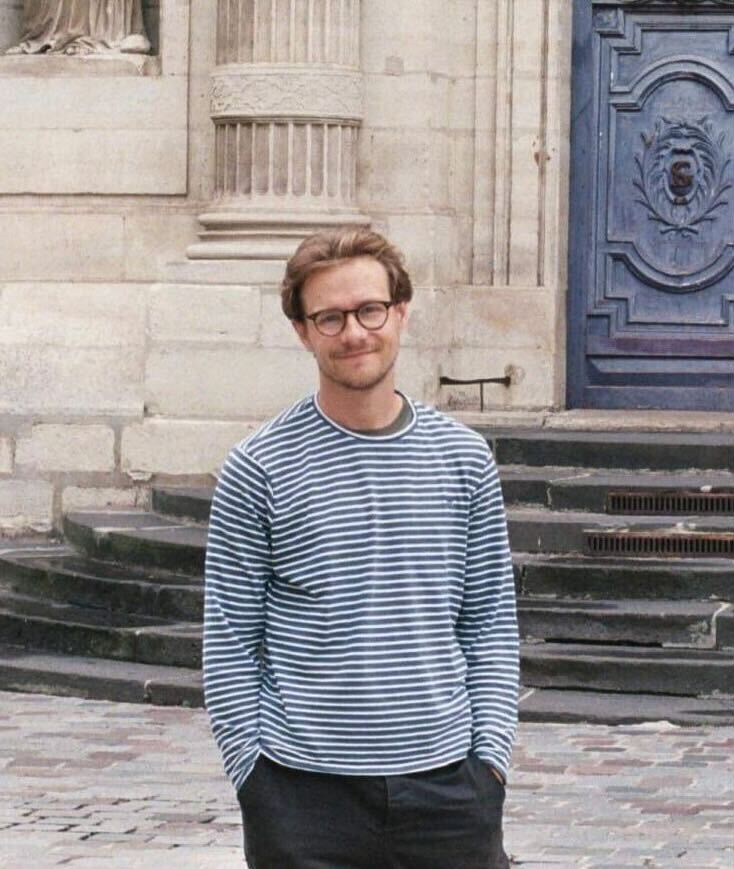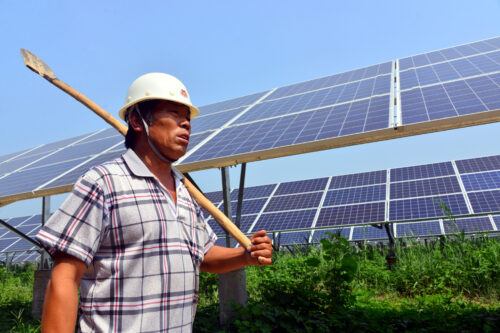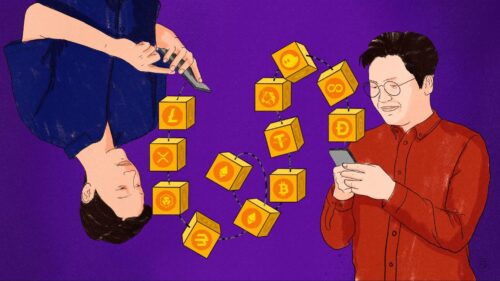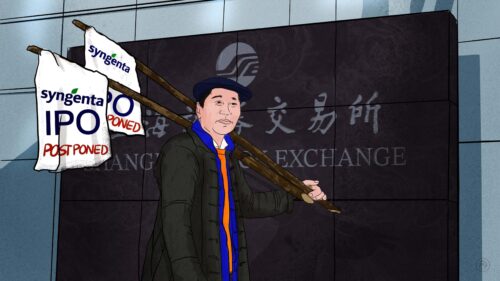A guide to China’s disappeared tycoons and financiers
In February, the chairman and CEO of investment bank China Renaissance disappeared. Ten days later, his firm disclosed that he was cooperating in an official investigation into a former colleague. Bao Fan was not the first and won’t be the last executive that mysteriously disappears in China. These are some of the recent high-profile cases of executives who have been detained incommunicado by security agents.
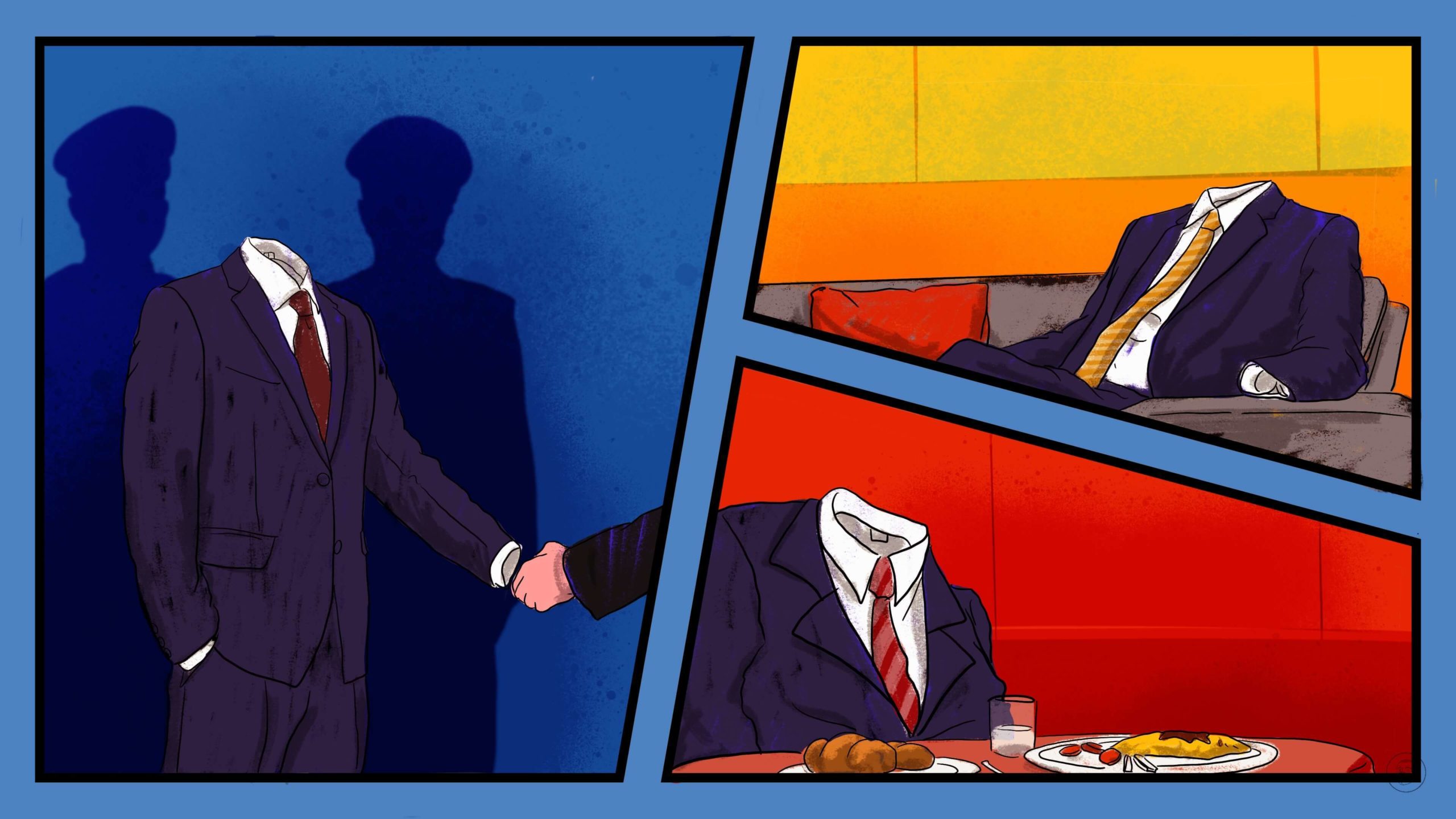
2023 was meant to be the year that Xí Jìnpíng 习近平 kickstarted the economy in an attempt to return to the halcyon days of high growth through nurturing innovation, courting foreign investment, and emphasizing the tech sector: “The key is to boost confidence,” Xi said at the Central Economic Work Conference in December 2022.
This seemed to indicate that he wanted to move on from the many crackdowns that have spooked many Chinese business people over the past few years, and a researcher from the Research Center for Xi Jinping Economic Thought backed this up, writing that the government should “protect the personal and property rights and interests of entrepreneurs when they are assisting the disciplinary inspection organs with their reviews.”
However, the Central Commission for Discipline Inspection (CCDI) itself has come out with messaging that conflicts with this. A communiqué released at the close of the CCDI plenary session in January stated that it would “resolutely prevent…political and business collusion and capital infiltration into the political sphere.” In February, an article on its website admonished, “We will intensify the investigation and punishment of…‘revolving doors for politics and business,’ [and] resolutely break the link between power and capital.”
Then on February 16, high profile investment banker and tech industry rainmaker Bāo Fán 包凡 disappeared, apparently seized by security agents. His firm, China Renaissance, said in a Hong Kong Stock Exchange filing that it had “been unable to contact” him. On February 26, China Renaissance said that its board had “become aware that Mr Bao is currently cooperating in an investigation being carried out by certain authorities in the People’s Republic of China.” Five days earlier, citing anonymous sources, Reuters had reported that Bao was helping in an investigation into Cóng Lín 丛林, the company’s former president.
The “revolving door” mentioned by the CCDI is likely playing a key role in the case: Bao had recruited Cong in 2020 from ICBC International, part of one of the Big Four state-owned banks. According to respected financial media outlet Caixin, China Renaissance was paying Cong double the compensation of other executive directors at the firm.
In September 2022, Cong disappeared. He has since left all his posts, which included his role as president of China Renaissance and chairman of its subsidiary Huajing Securities. Huajing was accused of violating securities law at the time. Cong’s disappearance has not been publicly acknowledged by Renaissance, though his name has been removed from its website.
The Chinese authorities have remained silent on the case. But as Donald Clarke, a scholar of Chinese law at George Washington University points out, Bao’s disappearance is “no doubt part” of a pattern of Chinese financial executives who get caught up in corruption investigations and vanish: “It is virtually certain that he has been detained by the party-state, and not, say, by gangsters or kidnappers.”
Of course, those with whom the outside world has euphemistically “lost contact” (失联 shī lián) are legion. They range from human rights lawyers such as Gāo Zhìshèng 高智晟 to celebrities such as the actress Fàn Bīngbīng 范冰冰 (now back in the limelight) and the tennis star Péng Shuài 彭帅 (not quite back).
But perhaps the best known is Jack Ma (马云 Mǎ Yún), founder of Alibaba, who disappeared in late 2020 for three months, days before Alibaba affiliate Ant Group was set for the biggest IPO of all time, and days after Ma had made a speech obliquely criticizing the government’s regulatory policies.
Here are eight other prominent executives who have disappeared in recent years.
Guō Guǎngchāng 郭广昌
Guo co-founded Fosun International Limited, a sprawling conglomerate which at one point made Guo the richest man in mainland China. Fosun invests in everything from the Cirque du Soleil circus company to Tsingtao Brewery 青岛啤酒, pharmaceuticals, insurance, tourism, mining, oil, and a bewildering array of other industries.
Fosun even owns Wolverhampton Wanderers, aka Wolves, an English Premier League football club, which purchased in 2016 during the heyday of Chinese businesses investing in European clubs (and when Xi Jinping took a selfie with famous Argentinian player Sergio Aguero).
However, on December 11, 2015, Guo was detained by police to assist authorities with an investigation linked to a corruption case earlier that year. Amid a huge uproar among foreign business people and media — one executive called it “an earthquake in financial circles” — Guo re-emerged only three days later at Fosun’s annual meeting in Shanghai, as if nothing had happened.
This high-profile disappearance is one that commentators have most frequently compared with that of Bao Fan, though it remains to be seen if Bao is released as quickly.
In 2023, despite some financial difficulties at Fosun, Guo is busy developing a real estate project with Jack Ma — perhaps the most famous of the disappeared billionaires — on the Bund in Shanghai.
Rèn Zhìqiáng 任志强
Unlike Guo, Ren has not escaped so lightly: Since September 2020 he has been serving out an eighteen-year prison term, ostensibly for graft.
Ren is from a Red family — his father was Vice Minister of Commerce. He grew up in Shandong Province, spent much of the Cultural Revolution as a sent-down youth in Yan’an, Shaanxi Province (the Communist Party’s base from late 1935 to early 1947), and was a soldier for a decade in the PLA before entering into the state-controlled property sector. As the head of Huayuan Real Estate Group 华远地产股份, he became the highest salaried employee among all 258 listed Chinese companies that disclosed their annual reports in 2009.
His first brush with the law came back in 1985 when he disappeared for over a year. He was never convicted of any crime, but it was likely because he had offended an official in Beijing’s audit department.
Known for his pugnacious attitude (fellow real estate mogul Pān Shíyì 潘石屹 claimed that Ren was always happy after arguing with others), he was sometimes called “China’s Donald Trump,” as well as “Big Cannon Ren,” for explosive views he used to express on social media. But on March 12, 2020, he disappeared. His detention was only acknowledged by the authorities in April. The apparent reason: In February, he had published an essay entitled “The clown who strips off his clothes and insists on acting as Emperor,” a characteristically unsubtle critique of Xi and his COVID policies.
Xiào Jiànhuá 肖建华
In a scene worthy of an espionage thriller, on January 17, 2017 — the eve of Chinese New Year — the billionaire owner of Tomorrow Group 明天控股, Xiao Jianhua, was whisked away in a wheelchair with his head covered from his luxury apartment at the Four Seasons Hotel in Hong Kong by mainland agents.
From there, he was smuggled onto a boat and brought back to the mainland — the plainclothes officers had no legal authority to act in Hong Kong at the time.
Despite a full-page advertisement in Xiao’s name appearing in a Hong Kong newspaper several weeks later claiming that the billionaire was actually “receiving medical treatment overseas,” and would meet the press as soon as the treatment was finished, it was later reported that Xiao had in fact been “persuaded” to cooperate with Chinese authorities investigating “the stock market turmoil of 2015 and the case of a former top spy.”
Xiao, who had entered Peking University aged just fourteen and had opposed the Tiananmen Square protests in 1989, was the owner of Tomorrow Holding, an investment group with numerous interests across financial, real estate, and industrial sectors.
He has been referred to as “China’s biggest white glove” — in other words someone who helps Communist Party officials do business and invest without using their own names. He is known to have assisted with the financial dealings of many of the Party’s elites, including helping Xi Jinping’s own sister and brother-in-law. At least one U.S.-based professor believes that Bao Fan’s circumstances could be similar.
In August last year, two years after regulators had taken over many companies linked to Tomorrow Group but only one year after the company confirmed that Xiao was in mainland China, he was sentenced to thirteen years in prison for a number of financial crimes.
Yim Fung (阎峰 Yán Fēng)
Another disappearance during the 2015 anti-graft crackdowns on industry was the chairman and CEO of Guotai Junan, one of the PRC’s largest investment banks. Guotai is partially state-owned but also publicly listed on both the Shanghai and Hong Kong stock exchanges, with total assets as of 2022 estimated at over $115 billion.
Yim disappeared in November 2015, not long after being awarded “Best Investment Banker of the Year” by Ta Kung Pao, China’s oldest extant newspaper that is now owned by the government.
Yim resurfaced the following month, having apparently helped mainland authorities with an investigation. Although the details were never specified, it was speculated at the time that the focus of the investigation was Yáo Gāng 姚刚, a vice chairman of the China Securities Regulatory Commission (CSRC), and former general manager at Guotai.
Yim is an alumnus of both Qinghua University and the Chinese Academy of Social Sciences. He had worked his way up through the ranks of Guotai for fifteen years until his disappearance in 2015. Similar to Bao’s case, Yim’s firm released a statement notifying investors that it had been unable to contact him for several days, before it emerged that he had was assisting with an investigation.
Seemingly found free of personal malfeasance, Yim has engaged prominently with the state, submitting various proposals for reforms and will sit as a member on the Fourteenth People’s Political Consultative Conference, running from March this year until 2028.
Máo Xiǎofēng 毛晓峰
By 2015, Mao had become the youngest president of a listed Chinese bank, Minsheng Bank 中国民生银行, at the age of 43. However, on January 31 that year, the bank issued a filing to the Shanghai Stock Exchange stating that the company’s board of directors had received Mao’s resignation letter, due to personal reasons.
It turned out that Mao was being investigated for suspected “serious violations of law and discipline.” One issue was a purported “wives club” whereby many senior employees’ spouses received sizable salaries for nominal or no real work for the organization.
Mao has completely disappeared from public view and his current whereabouts are unknown.
Xú Xiáng 徐翔
Xu’s work heading up the investment fund Zexi Investment 泽熙投资 earned him the nickname “hedge fund brother No.1,” as well as the moniker “China’s Carl Icahn,” after the American activist investor and hedge fund manager. It also earned him more than five years in jail and a steep fine of over $2 billion for insider trading.
Less of a quiet disappearance, Xu Xiang’s arrest was melodramatic: In November 2015, local traffic cops sealed off the Hangzhou Bay Bridge — one of the world’s longest bridges at 35.7 km (22.2 miles) — for over half an hour while trying to apprehend him. However, officials were tight-lipped about the nature of the arrest, and Xu was only charged at the end of the following April.
Xu was released in 2021.
Wú Xiǎohuī 吴小晖
Wu is the former chairman and CEO of Anbang Life Insurance 大家人寿保险, a firm whose rise and fall was intimately bound up with its leader. From 2004 until 2017, Wu transformed the company from a local car insurer into a global behemoth with a string of foreign acquisitions, including the 2015 purchase of the Waldorf Astoria hotel in New York. During the Trump presidency, Anbang even attempted to acquire a tower on Fifth Avenue, at the time owned by Jared Kushner’s family.
Wu was known to be one of the more well-connected businessmen in China, and was married to Zhuō Rǎn 卓苒, the granddaughter of Dèng Xiǎopíng 邓小平.
However, in June 2017, Wu disappeared. Anbang released a terse, one sentence note, stating merely that Wu was unable to perform his duties at that time. No further explanation was given.
Then, in March 2018, Wu was put on trial and charged with fraud and embezzlement. That August he was sentenced to 18 years in jail. Nearly $1.5 billion of his assets were confiscated.
Whitney Duàn Wěihóng 段伟红
Whitney Duan, the only female dealmaker on this list, is also the only member of the list whose whereabouts are as yet unknown, despite having disappeared over five years ago, on September 5 2017.
Duan was also likely another “white glove” with close ties to the wife of former premier Wēn Jiābǎo 温家宝, and it has been suggested that she was involved in illegally handling the family’s wealth.
She was also known to be close to Sūn Zhèngcái 孙政才, at one time seen as a possible successor to Xi Jinping. Sun himself was arrested in 2017 for corruption.
Duan’s experiences have been detailed at length in the memoir Red Roulette by her ex-husband Desmond Shum (Shěn Dòng 沈棟). Shum is also familiar with the Bao Fan case, having worked with Bao at AsiaInfo. He has also called Bao “THE banker of China’s IT industry” and drew parallels between his wife’s case and that of Bao.
Despite Duan’s whereabouts remaining unknown, she resurfaced briefly before Shum’s book was published, warning Shum not to go to print. Shum also claimed that a friend in Beijing warned him that if the authorities ever allow Duan to emerge, it would only be in a vegetative state.
The takeaway
All these cases point to the sword of Damocles that hangs above the heads of China’s elite businessmen and women. Bao’s disappearance is emblematic of how this has extended even into the tech industry, which the government at other times lauds as central to its ambitions.
It is telling that so many tech founders have stepped back from their positions in recent years. A remarkable photo that did the rounds on Chinese social media from the annual Wuzhen Internet Conference in 2017 shows the heads of many of China’s top firms sitting round a dining table: Tencent, JD.com, Didi, Pinduoduo, Meituan, Xiaomi, and more. Since then, most have left their positions, in large part due to a changing assessment of the pressures and risks attached to being a prominent symbol of capital in Xi Jinping’s China.
Companies:
- China Renaissance 华兴资本
- Alibaba 阿里巴巴集团
- Ant Group 蚂蚁集团
- Fosun International Limited 上海复星高科技集团
- Tsingtao Brewery 青岛啤酒
- Beijing Huayuan Group 北京市华远集团
- Huayuan Real Estate Group 华远地产股份
- Tomorrow Group 明天控股
- Guotai Junan 国泰君安证券
- Agricultural Bank of China 中国农业银行
- China Minsheng Bank 中国民生银行
- Zexi Investment 泽熙投资
- Anbang Life Insurance 大家人寿保险
Sources and additional data:
- “关键是提振信心”(微镜头·习近平总书记在中央经济工作会议上) “The key is to boost confidence” (Micro Lens General Secretary Xi Jinping at the Central Economic Work Conference / The People’s Daily
- 从政策和舆论上鼓励支持民营经济和民营企业发展壮大 Encourage and support the development and growth of private economy and private enterprises in both policy and public opinion / Study Times 学习时报
- 中国共产党第二十届中央纪律检查委员会第二次全体会议公报 Communique of the Second Plenary Session of the 20th Central Commission for Discipline Inspection of the Communist Party of China / CPC Website
- 坚决打赢反腐败斗争攻坚战持久战 Resolutely Win the Protracted Battle Against Corruption / CCDI Website
- 华兴资本能离开包凡吗? Can China Renaissance leave Bao Fan? / 36kr
- 华兴资本创始人包凡失联?旗下华兴证券多位董监高发生变更 Huaxing Capital founder Bao Fan lost contact? Several directors, supervisors and executives of Huaxing Securities, a subsidiary of Huaxing Securities, have changed / Huxiu.com
- Famed Chinese rainmaker, Bao Fan, goes missing in latest executive disappearance / The China Project
- CHINA RENAISSANCE HOLDINGS LIMITED 華 興 資 本 控 股 有 限 公 司 / Company Securities Filing
- CHINA RENAISSANCE HOLDINGS LIMITED 華 興 資 本 控 股 有 限 公 司 / Company Securities Filing
- Chinese bank says missing chairman is cooperating with Chinese authorities in an investigation / Reuters
- In Depth: Hiring of ICBC Veteran Looms Over Disappearance of China Renaissance Founder / Caixin Global
- What the Bao Fan disappearance tells us about China’s legal system / The China Collection
- Everything’s fine now: Fan Bingbing returns to acting after tax scandal / The China Project
- Women’s Tennis Association demands meeting with Peng Shuai / The China Project
- Ant Group IPO suspended after Jack Ma criticizes regulators / The China Project
- 郭广昌的朋友圈:潮起潮落,人聚人散 Guo Guangchang’s circle of friends: the tide rises and falls, people gather and others disperse / 36kr
- 任志强的年薪风波:770万元?70万元? Ren Zhiqiang’s annual salary turmoil: 7.7 million yuan? 700,000 yuan? / Sohu
- 《东方企业家》特稿:任志强不生气 “Asian Entrepreneur” feature: Ren Zhiqiang is not angry / Reuters
- 任志强署名炮轰文章原文全文《剥光衣服坚持当皇帝的小丑》 Ren Zhiqiang: the original full text of the explosive article “The Clown Who Strips Off His Clothes and Insisted on Being the Emperor” / Banned books website
- News roundup: A tale of two disappearing billionaires / The China Project
- “中国最大白手套”肖建华获刑13年 “China’s biggest white glove” Xiao Jianhua sentenced to 13 years / Radio Free Asia
- Xiao Jianhua, student leader who became an abducted tycoon / Financial Times
- “明天系”企业被中国当局接管 集团反抗遭删帖 “Tomorrow Group” Taken Over by Chinese Authorities, Social Media Posts Deleted / DW news
- 国泰君安国际阎峰失联一个月:以个人身份配合调查 Guotai Junan International Yan Feng lost contact for a month: Cooperating with the investigation in his personal capacity / Finance.china.com
- 农行行长张云被降为正处 曾被原副行长当庭举报 Zhang Yun, the president of the Agricultural Bank of China, was demoted and was reported by the former vice president in court / Sohu
- 赵欢辞去农业银行行长等职务,周慕冰代为履行行长职责 Zhao Huan resigned as president of the Agricultural Bank of China, with Zhou Mubing performing the duties of president on his behalf / The Paper
- 身为清华学霸曾攀附民生银行太太俱乐部 原吉林省金融办主任被查 As a top student from Tsinghua University, and once attached to the Wife Club at Minsheng Bank, the former director of the Jilin Provincial Finance Office has been under investigated / Finance.sina.com
- Once-Highflying Anbang Chief Isn’t Able to Do His Job / Wall Street Journal
- Missing Chinese entrepreneur briefly surfaces on eve of book’s publication / Financial Times
- 乌镇互联网大会|吃饭喝茶喝酒聊天,大佬们为啥好这口儿? Wuzhen Internet Conference | eating dinner, drinking tea, and chatting / Zhoudao
- Tough times for Chinese tycoons – China’s latest top news / The China Project
- Without a Trace / The Wire China
- 72 super rich dead before their time since 2003 / The China Daily
- China’s top bankers who “disappeared,” were detained, or died unnaturally in the past year / Quartz
